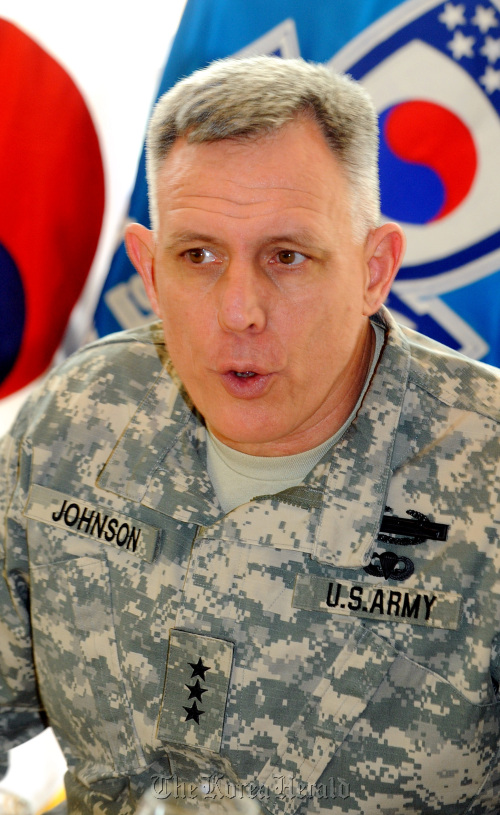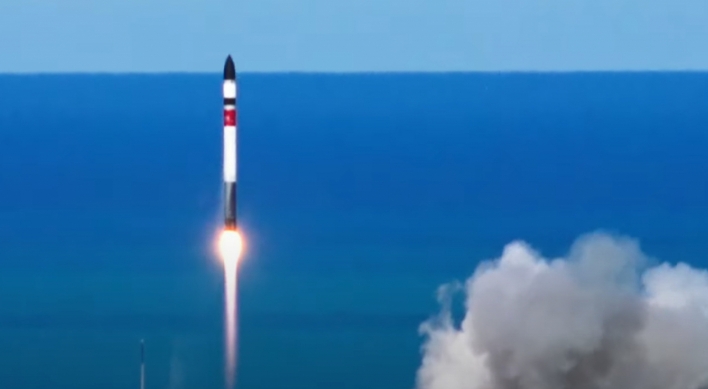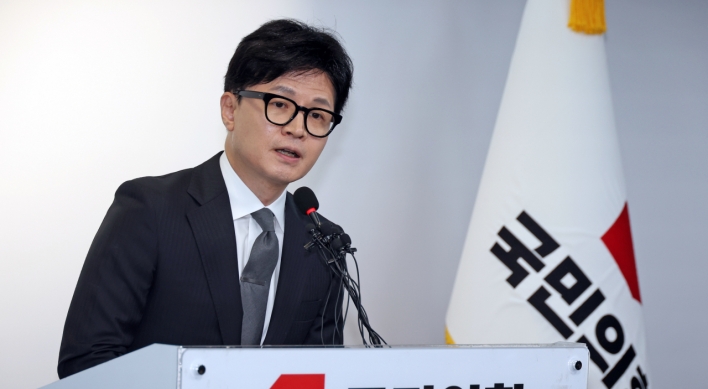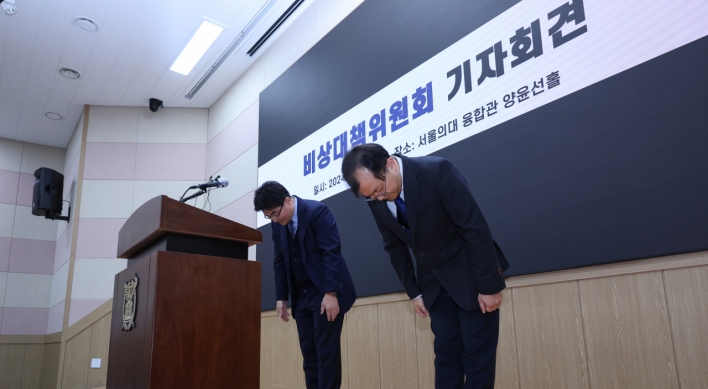‘U.S. military closely monitors N. Korea moves’: Gen. Johnson
By Song SanghoPublished : April 20, 2011 - 19:03
The commander of the Eighth U.S. Army here said Wednesday that there have been no unusual North Korean movements detected recently, underscoring that the allied troops are closely monitoring them.
“I am not tracking anything out of the ordinary right now,” Lieut. Gen. John D. Johnson said in a meeting with Korean journalists at the Yongsan Garrison in central Seoul.
“I am not tracking anything out of the ordinary right now,” Lieut. Gen. John D. Johnson said in a meeting with Korean journalists at the Yongsan Garrison in central Seoul.

“We observe forces in North Korea very closely in conjunction with intelligence capabilities of the ROK (Republic of Korea) military. This is one area that we are stronger today than we have ever been ― the way we share information for the capabilities of the ROK military and U.S. military.”
Touching on the concerns over the possible security gaps when the U.S. troops are preparing to relocate to Pyeongtaek, Gyeonggi Province, Johnson emphasized that they prioritize abilities to successfully execute missions to defend South Korea.
“The plan for the move to Pyeongtaek is based on ensuring we don’t have the gaps in our ability to execute our missions. So, we will take every opportunity to rehearse those movements and make sure the first consideration in every move is that we are able to execute our missions.”
“We will make sure that we think about this in terms of equipment, training of our soldiers and coordination with the ROK military to make sure that is the case.”
Regarding South Korea’s ongoing military reform efforts, Johnson expressed expectation that they could serve as an opportunity to enhance the bilateral military alliance.
“These changes have occurred throughout our relationship since the (1950-53) Korean War. In every case, it has made our relationship stronger. It is because we find a way to complement each other,” he said.
While mentioning the plan to revamp South Korea’s top command structure, Johnson said, “I am sure whatever the result is will be the best solutions for the ROK government and people. We will make sure our relationship remains strong and our capabilities remain complementary.”
The commander also said that the U.S. troops that will be stationed here after the transfer of wartime operational control, slated for December 2015, will have the same capabilities as before.
“OCOPN transfer is focused on command relationships. It is not focused on the types of forces that we have committed here. Forces that are necessary for the mission is not going to change because of the OPCON transfer,” he said.
About 28,500 U.S. troops are stationed in South Korea, a legacy of the Korean War.
USFK officials also said the 8th Army’s efforts for transformation ― from a Korean War-era Army Service Component Command to a war-fighting field army ― would better allow it to defend South Korea and maintain stability throughout Northeast Asia.
By Song Sang-ho (sshluck@heraldcorp.com)



![[Exclusive] Korean military set to ban iPhones over 'security' concerns](http://res.heraldm.com/phpwas/restmb_idxmake.php?idx=644&simg=/content/image/2024/04/23/20240423050599_0.jpg&u=20240423183955)

![[Graphic News] 77% of young Koreans still financially dependent](http://res.heraldm.com/phpwas/restmb_idxmake.php?idx=644&simg=/content/image/2024/04/22/20240422050762_0.gif&u=)



![[Pressure points] Leggings in public: Fashion statement or social faux pas?](http://res.heraldm.com/phpwas/restmb_idxmake.php?idx=644&simg=/content/image/2024/04/23/20240423050669_0.jpg&u=)









